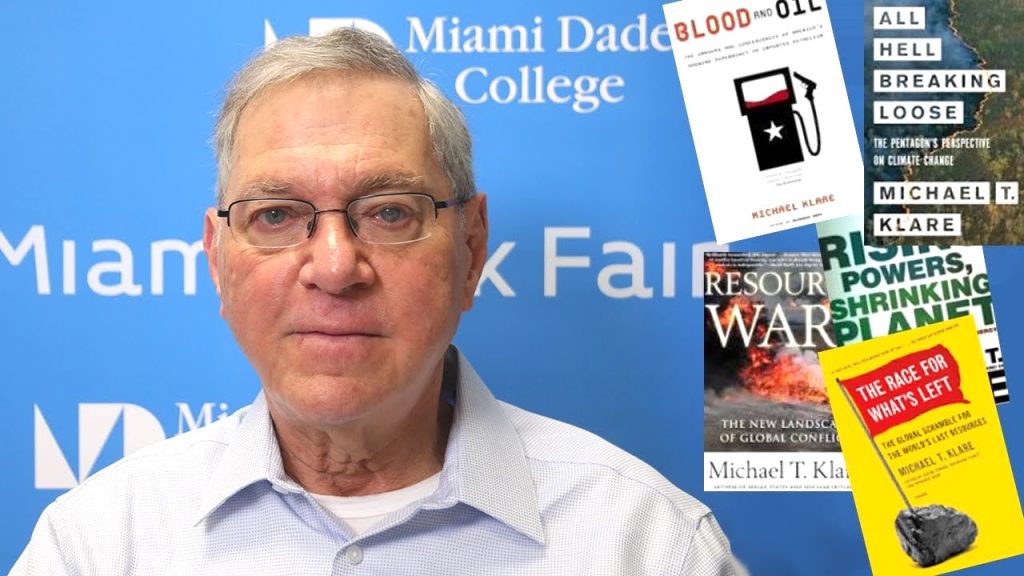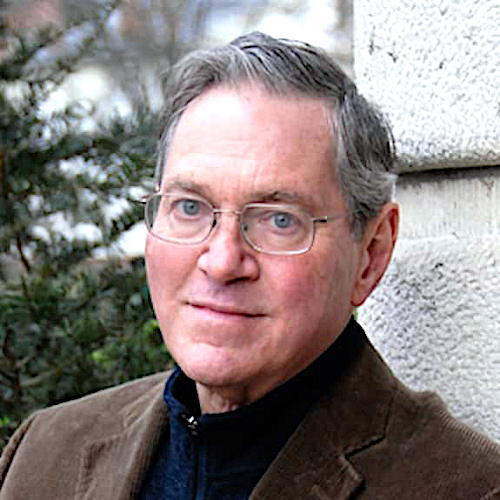Events continue to unfold at a quickening pace. Facing an alarming escalation in tensions around the world, we asked Michael T. Klare for his current thoughts.
We focus here on the realities of the international power struggle unfolding in real time, specifically addressing the role of the U.S. in the tensions and its capacity to reduce them. We are looking for paradigm-shift ideas for improving the prospects for peace. His responses below are exactly as he provided.
Here is what Michael had to say.
Q. We hear a lot of terms and acronyms bandied about. ‘Deep State’ … ‘MIC’ … ‘FIRE sector’ … ‘ruling elite’ … ‘oligarchy’ … ‘neocons’. Who actually defines and sets America’s geopolitical priorities and determines our foreign policy? Not “officially”. Not constitutionally. But de facto.
MK: From my experience, US foreign policy is set by what some have called the “blob” – the unelected, bipartisan, self-replicating network of senior Washington policymakers (NSC, DoD, CIA) plus the chairs of the House and Senate Armed Services and Foreign Affairs Committees; engaged former generals, admirals, and ambassadors; major defense contractor lobbyists; and key think-tank and media pundits (usually interchangeable with the other categories).
Q. We’ve had decades of international tensions. Recent developments have seen a sharp escalation in the potential for a major war. The U.S. apparently cannot be at peace. “Threats” against the homeland are allegedly increasing in number and severity. The trajectory of our relations with the rest of the world appears to be more confrontations, more enemies, more crises, more wars.
Is the world really that full of aggressors, bad actors, ruthless opponents? Or is there something in our own policies and attitudes toward other countries which put us at odds with them, thus making war inevitable and peace impossible?
MK: I believe that the United States, like all major military powers, strives for global hegemony in competition with other major military powers. This “great-power competition,” as the military calls it, is built into the DNA of major US political institutions and has full bipartisan support. It means that when America’s strategic overseas interests clash with those of another great power, say in Ukraine or over Taiwan, tensions are bound to rise and the risk of war increases.
Q. Our leaders relentlessly talk about our “national interests” and our “national security”, warning that both are under constant assault. Yet, we spend more than the next nine countries combined on our military. Why does such colossal spending never seem to be enough?
MK: The United States is, at present, the only so-called great power which seeks to exert its power on a global basis, on every continent. This requires lots of troops, planes, ships, and overseas bases. Maintaining this global military presence is very, very expensive. No other nation is event attempting to replicate this posture, so they needn’t spend so much on defense.
Q. It’s evident that you, and the many individuals who follow you and support your work, believe that America’s direction in both the diplomatic sphere and in the current conflict zones represents exercise of government power gone awry. Can you paint for us in broad strokes the specific changes in our national priorities and policies you view as necessary for the U.S. to peacefully coexist with other nations, at the same time keeping us safe from malicious attacks on our security and rightful place in the world community?
MK: The United States is not the only major power that is well-armed and threatening regional and global stability – China, Russia, and even India and Turkey are doing so as well. So the U.S. priority must be to manage international competition in ways that reduce the risk of a major war. This means pursuing additional arms control measures and installing conflict-avoidance and crisis-management measures. In particular, it means working with China to reduce the risk of war over Taiwan.
Q. The general public, especially when it’s aware of the self-sabotaging results of our current foreign policies and military posturing, clearly wants less war and militarism, preferring more peaceful alternatives on the world stage and greater concentration on solving the problems at home. As peace activists, we are thus more in line with the majority of citizens on issues of war and peace, than those currently in power.
What happens if we determine that those shaping current U.S. policy don’t care what the citizenry thinks, are simply not listening to us? What if we conclude that our Congress, for example, is completely deaf to the voice of the people? What do we do? What are our options then? What are the next concrete steps for political activists working toward a peaceful future?
MK: Calling for diplomacy, not war with China.
_________________________________________________________________________________________






